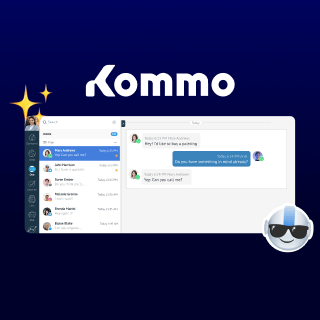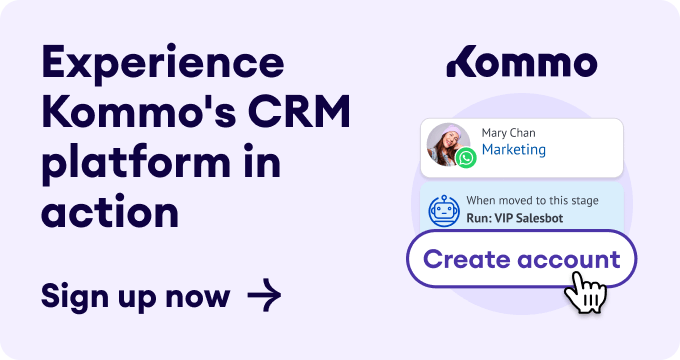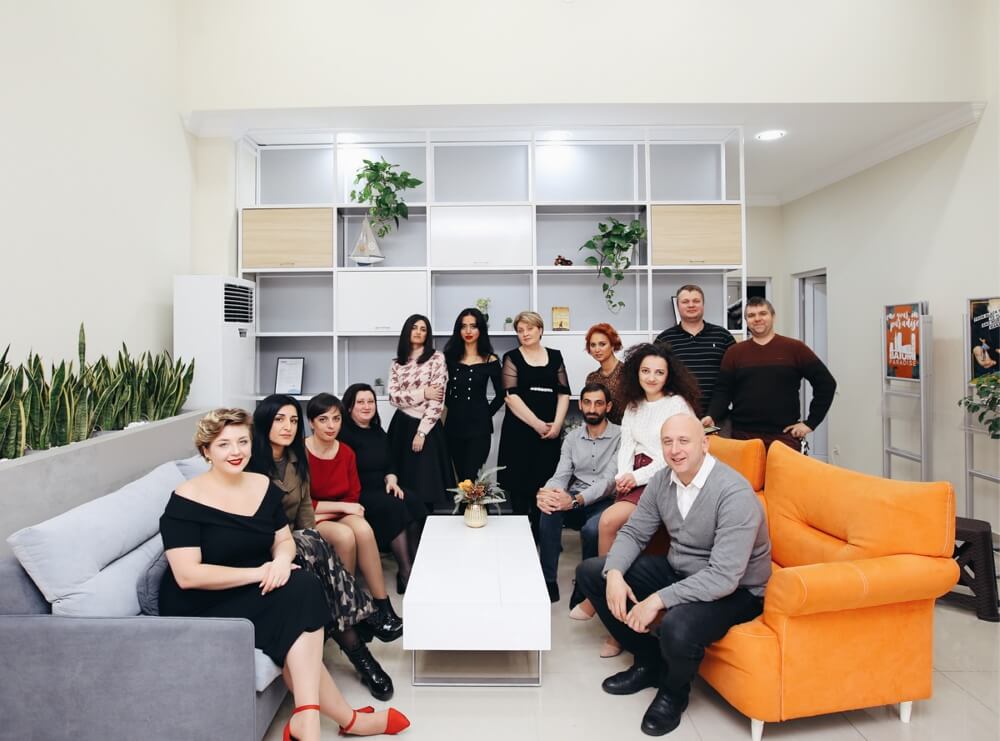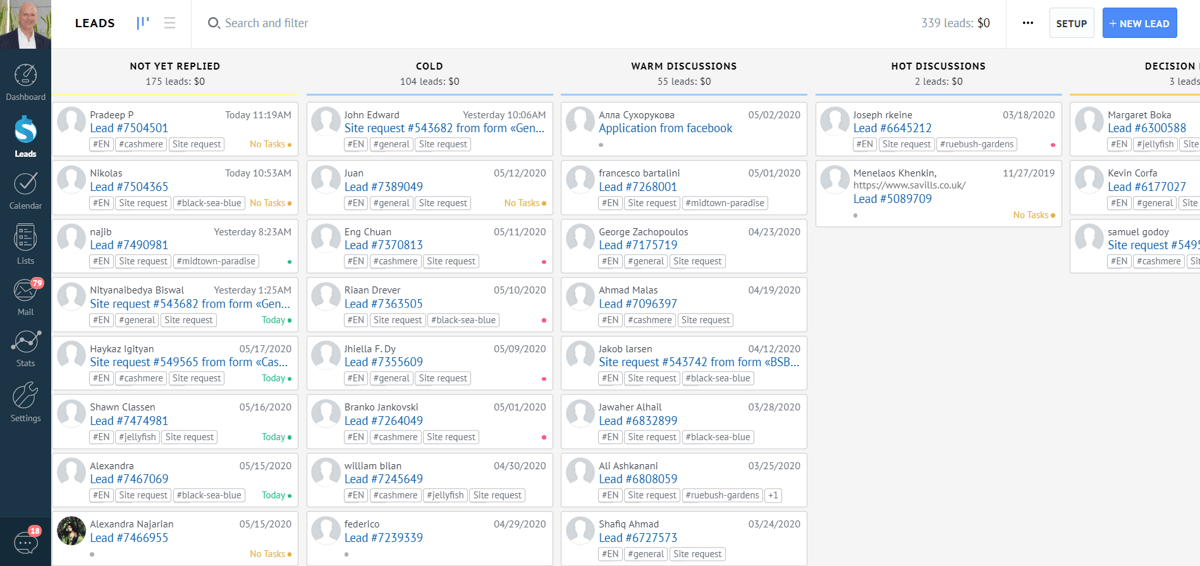Interview with David Ruebush, founder of Ruebush Group
//
TL;DR
Implementing a CRM for property management helped this boutique hotel developer eliminate useless leads and take control of their chaotic sales process, tripling their sales to $1million a month.
Background
Nestled at the intersection of Europe and Asia, Georgia is one of the hidden gems of the tourist world. The tiny nation has something for everyone: centuries of cultural heritage, a booming wine industry, a cuisine that’s just started trending in Europe, and beyond-breathtaking scenery.
Georgia is a real estate dream, from its Black Sea beach getaways to its luxurious ski resorts. Ruebush Hospitality Group allows everyday people to own their own of that dream.
The full-service development and management company was founded in 2012. Founder David Ruebush says that what started as a typical buy-remodel-flip real estate company evolved into something else.
“We kind of realized that the market's getting saturated — we wanted to look for something more profitable, so now our company is a boutique hotel developer,” he explains, “and we have a very interesting kind of twist to our business: What we do is we develop hotels in Georgia, and then we allow people all around the world to invest in our hotels by selling them rooms. So you can buy a room in our hotel and profit from the bookings on those rooms.”
Essentially, each hotel is crowd-funded, and each Average Joe and Jane are investors with a stake.
Today, Ruebush Hospitality Group manages properties, designs, and builds everything — from boutique guesthouses to luxury hotels and resorts to multi-functional co-working spaces.
“It’s like a real estate company,” he says. “I mean, we're kind of like selling real estate. But it's different... We have architecture, we have design, we have hospitality management, we have food and beverage. We have everything.”
The goals
David explains that the company has a two-fold mission, which aims to:
- Help the average investor break into commercial real estate (without having to be a millionaire).
- Bring profits to their investors by successfully operating their hotels with high quality and service.
Because of this model, their main sales process is focused on finding and securing investors.
The challenges
The primary challenge that David and his team faced was related to the organization of their sales process.
“We didn't have a very professional sales process,” he explains, “We had very professional salespeople, but the process itself wasn't very controlled and organized.”
Challenge #1: No way to see the big picture
David says that the core of the issue was that management couldn’t see what was happening, so they couldn’t get the big picture. They didn’t know:
- Which ads were successful.
- Where the leads were coming from.
- Who was working with what lead.
- Which stage the lead was in.
- If there was a conversation with a lead.
David clarifies, “It was impossible to understand what was going on in any individual sale without literally going to the salespeople and asking them directly.”
“It was impossible to understand what was going on in any individual sale without literally going to the salespeople and asking them directly.”
Challenge #2: No clue which advertising was converting
The second challenge was the advertising process. David explains, “We were getting hundreds and hundreds of worthless leads that just wasted our time… we would pay for Facebook ads, pay for YouTube ads, and just hope stuff would work.”
“We were getting hundreds and hundreds of worthless leads that just wasted our time.”
In search of a CRM for property management
The search for an effective CRM for property management didn’t take long. The company quickly chose Kommo for two reasons:
Low price
Because the expenses for real estate development are enormous, David says it was a priority to control all costs. CRMs like Salesforce were just too expensive and didn’t offer more features. He adds, “Having all these features in Kommo, but having them at a very low price point was attractive.”
“Having all these features in Kommo, but having them at a very low price point was really attractive.”
Easy to learn
David says that their sales manager had experience with Kommo before, and she recommended it to the team. Although they were initially resistant to moving into a CRM, they quickly learned how to use it, and it only took a little time to get them on board. “We've been impressed with it,” he says.
How Ruebush Group grew monthly sales to $1m with Kommo
David explains that the sales process can last up to a year because it takes time to build trust and confidence with the potential stakeholder.
“Our primary clients are Western Europeans and Americans,” he explains, “So, we're talking about having somebody from America trust somebody in Eastern Europe enough to send one hundred thousand dollars to them. So this is a long sales process. It takes a long time to build that trust and build that confidence.”
To build serious relationships like this, the team nurtures trust through consistency and the personal touch.
“We use Kommo, social media, and newsletters,” he explains, “to slowly build trust with our clients until they finally become investors.”
“We use Kommo, social media, and newsletters to slowly build trust with our clients until they finally become investors.”
Here’s how David and the team did it.
Step 1: Put the sales cycle into the pipeline.
They started by mapping out their sales cycle with 7 stages:
- Initial contact
- Not yet replied
- Cold
- Warm Discussion
- Hot Discussions
- Decision Making
- Contracting
Step 2: Created a contact form for each individual hotel
They created a unique form for each of their 6 hotels to segment those leads by tag instantly. Here’s an example 👇
Step 3: Messenger-based sales.
Since their investors come from across the globe, chat is a good method for building relationships, says David.
“What we have found is the most effective sales process,” he explains, “is to as quickly as possible we get the client onto WhatsApp and we just start talking to them face-to-face or chatting with them face to face… So, it's effective for us to be able to use the CRM because you can integrate with messengers, you can integrate with email.”
Step 4: Automated emails in a CRM for property management.
Next, the team sped up the communication process by adding automatic emails.
For example, now they send a welcome email that says: “Welcome and thank you for your interest in our projects. here’s a little bit more information about us….”
This method is efficient because when the lead gets that email and reads it, one of the salespeople is ready to start working with them.
They also use automated emails to easily share important information, such as a PDF document about the property they inquired about.
Step 5: Warm up leads by newsletter marketing (Mailchimp).
The follow-up strategy is also a long process — a big decision. For this reason, David uses a newsletter to warm up leads.
“We use MailChimp,” he says, “we're sending out weekly informational newsletters, and then we put buttons in the newsletters that link back to our website to various landing pages or forms to get people to respond.”
🎪 Mailchimp is an integration that allows you to subscribe contacts to your newsletter or drip campaign, send helpful follow-ups, offers and back-in-stock messages. Find out more about Mailchimp.
The results
After implementing a CRM for property management, Ruebush Hospitality Group has seen incredible results:
- Sales increased to $1 million per month (3x the revenue).
- Lead quality improved significantly.
“Since we added Kommo, our sales have increased dramatically,” says David, “We were averaging about $300,000 per month before implementing Kommo. After we implemented Kommo, we increased to almost one million dollars per month.”
“It's put more than three times the revenue into our bank account on a monthly basis,” he continues, “and so, and I think that's just mainly because we have very solid control over the sales process.”
“Our dollars have risen dramatically. We've set sales targets of $1 million per month or more now, and we're able to reach them.”
Since worthless leads stopped coming in and the quality of leads has improved that now convert much better, Ruebush Hospitality Group’s sales process has become much more professional and streamlined.
“The other thing is we have reduced our leads but improved the quality, he explains, “I mean, we were getting hundreds and hundreds of just worthless leads that just wasted our time. And now we have much, much higher quality leads. And those quality leads are converting a lot better.”
Ready to connect CRM for Property Management?
Set up isn’t hard, but if you’re feeling intimidated, reach out to one of our amazing Kommo's partners — they’re ready and willing to get your team using CRM for property management today.






